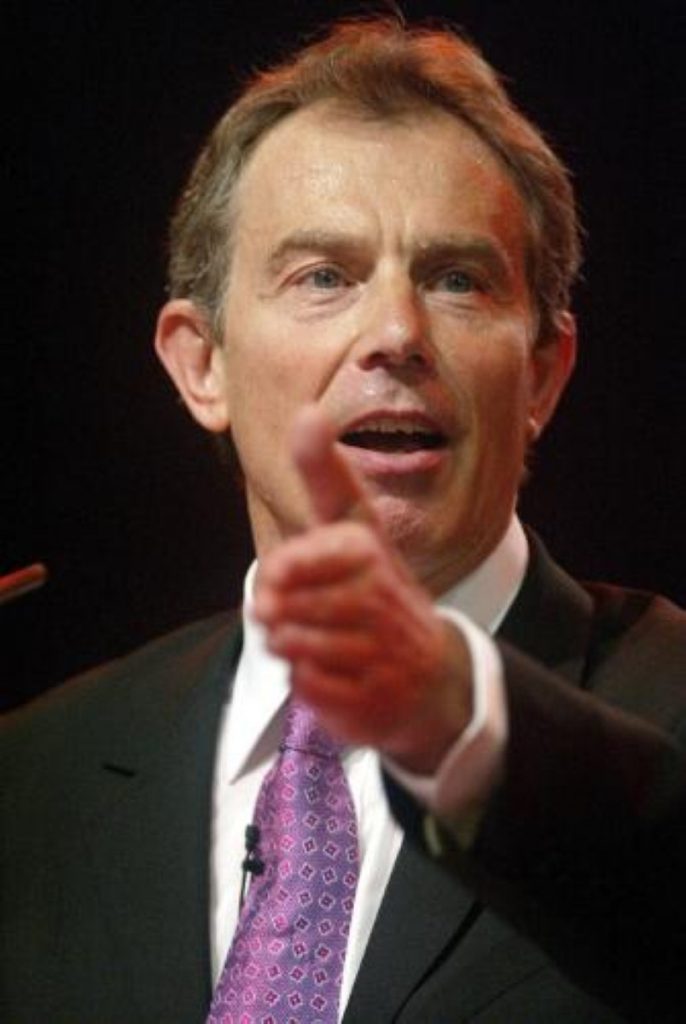English votes plan ‘completely wrong’
Tony Blair has described proposals to ban Scottish MPs from voting on English issues as “completely wrong”.
The prime minister fielded questions from two Labour backbenchers on Tory plans to only allow English MPs to vote on issues that only affect England, but not from Tory leader David Cameron who chose to focus on Afghanistan and the need to speed up compensation for victims of the London bombings.
At prime minister’s question time this afternoon Mr Cameron stayed away from asking about the parliamentary investigation of John Prescott, who is under pressure for failing to declare a stay at the home of an American billionaire, who hopes to set up the UK’s first super casino, on the Commons’ register of interests.
Instead he left it to one of his backbenchers, but the question was halted by the speaker who said there should be no more discussion since the case was before the Parliamentary commissioner for standards.


Liberal Democrat leader Sir Menzies Campbell, meanwhile, challenged the prime minister on the UK’s extradition arrangements with the United States.
Knowsley North MP George Howarth began the attack on the Conservatives’ plans for Scottish MPs, revealed by former chancellor Ken Clarke at the weekend, by suggesting that perhaps London MPs ought to be banned on issues not affecting London.
Glasgow MP Mohammad Sarwar asked the prime minister for reassurance that he would not be made a “second class MP”.
Mr Blair replied: “I think it is important that we have one class of member of Parliament”. The proposals were “wholly contrary” to the spirit of our constitution and “wholly irresponsible”, he said.
In more subdued exchanges than normal, Mr Cameron asked Mr Blair about reports that army commanders in Afghanistan had put in requests for more equipment.
“We have not at the present time received a request from the commanders on the ground for more resources,” Mr Blair replied.
He added: “The operational plans are drawn up and implemented by the commanders on the ground . but if they desire more, then yes we will give them support.”
And he said if the shadow foreign secretary’s proposal for a Nato special representative for Afghanistan was sensible, “we will do it”.
Their second exchange focused on compensation for the victims of the London bombings, which they agreed should be dealt with quickly, and on the importance of a programme to improve relations with Muslim communities.
The most aggressive question Mr Blair faced on Afghanistan came from his own benches in the shape of Newport West MP Paul Flynn, who highlighted comments from John Reid that the Helmand mission would not involve British soldiers firing a single shot.
“What he actually said is he would be happy if that was so,” Mr Blair replied, adding: “he most certainly was not saying this was a mission without danger”.
Sir Menzies Campbell focused his questions on the 2003 Extradition Act, which will be used to extradite three UK bankers to the US over the Enron accounting scandal.
Under the Act, the US does not need to provide obvious evidence of guilt to extradite UK citizens, but because the senate is yet to ratify similar legislation, the UK does have to provide such evidence when the situation is reversed.
Mr Campbell asked the prime minister: “What about the principle of reciprocity?”
Mr Blair replied that the purpose of the Act was to bring the US in line with European countries and others. He denied that the US had a “different evidential burden than this country”, and said it was wrong to “say the US has been given preferential treatment”.









